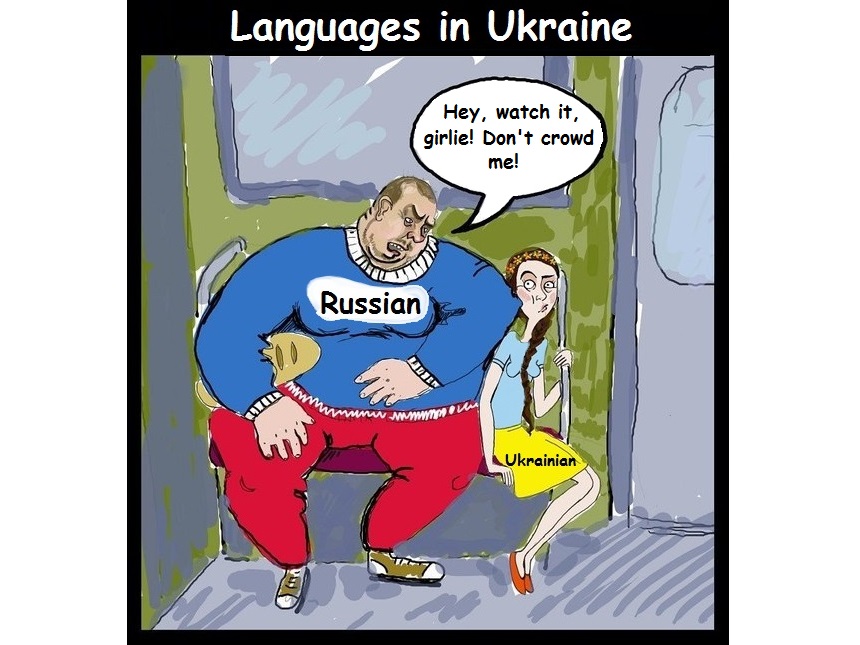By Luc Vancraen
Ukraine makes a big mistake by letting the EU define the sanctions. Instead, Ukraine should take the initiative and clearly voice what sanctions they expect from the EU, so that the international community can judge if the EU delivered or not.
Ukraine needs a Crimean Occupation Tax (COT) on all Russian energy imported into the EU (and all other countries willing to participate). Already in March Paul De Grauwe, from the London school of Economics, said: “If I were the EU dictator, I would impose an occupation tax on all Russian energy. There is no way for Russia to escape it.”
Putin is playing a long game. He can afford it, as he built up financial reserves in anticipation of this conflict. According to Russia’s economy minister, they can afford 2 years of hardship. The EU also is playing a long game. They can also afford it, as it is Ukraine’s territory that is at stake and not theirs.
In an effort to help Russia get economically on its feet during the nineties, the EU became Russia’s biggest energy importer. It imports 80% of Russian oil and gas production and 60% of Russia’s coal production. The theory was that if the EU engages with Russia and interconnects the Russian and EU economies, Russia would become a friendly nation that cannot afford to wage war against us. That theory has failed spectacularly and the EU needs to reduce its exposure to Russia.
Ukraine will not get foreign investments or real economic improvement as long as Russia continues to destabilize Ukraine. To balance this, it drastically needs compensation to do infrastructure projects. These can be funded through this occupation tax. The EU can spend it in Ukraine by guaranteeing private investments and organizing energy reforms and infrastructure investments.
The Crimean occupation tax should be levied on all Russian energy imports in the EU covering oil, gas and coal starting from 5% and ending at 25% maximum. It should gradually increase over the coming years making occupation ever more expensive.
- 2014 5%
- 2015 10%
- 2016 15%
- 2017 20%
- 2018 25%
It would break Russia economically even if energy prices remain high.
At first, the Russians would laugh and say it is not them but the EU citizens that pay. However, the EU pays today anyway to keep Ukraine alive. But don’t underestimate the creativity of the energy companies. They would just start consuming less gas and more other energy sources. Gas from pipelines can be replaced with gas through LNG terminals like the Baltics started doing. Oil can easily come from other counties like Nigeria or Saudi Arabia. To convert gas plants to burn oil should be pretty straightforward. Saudi Arabia that has a grudge over Syria with Russia has guaranteed the EU that it would deliver whatever Russia fails to deliver. An energy boycott from Russia would not work.
Russia’s government and army is essentially funded through a 30% export tax on energy exports. Bear in mind that Russia had to drop this export tax with China in the recent deal Putin closed because China was in a strong negotiation position.
If Gazprom wants to continue supplying EU energy companies they’ll have to lower their price to include the Crimean occupation tax to be competitive with competing products or substitutes from other countries.
The essence on the Crimean Occupation Tax is this:
- The EU needs to reduce their dependency on Russian energy. A tax does it for smoking. It will do it for Russian energy;
- Ukraine needs to be funded as long as it is destabilized by Russia. A tax on Russian energy imports will do this;
- Because the EU’s has a large size as a customer, it is very difficult for Russia to sell gas somewhere else. It will force them to lower their price to be competitive with suppliers that don’t suffer from this occupation tax. They cannot afford to lose the EU totally due to a lack of other available reliable customers. The price of Gazprom will become Gazprom price + Crimean Occupation Tax = market price;
- Then Russia funds Ukraine instead of the EU;
- Checkmate.
Why is the EU not already on this road? Appeasement, appeasement, appeasement.
[hr] Edited by Alya Shandra








